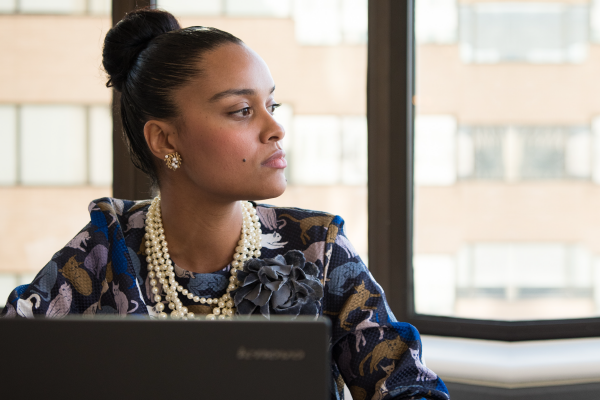Lawyers are the loneliest of all professionals. Social support is critical to well-being, so don’t wait to focus on finding connection.
The stress of working in the legal profession is well-documented. A prominent study in a 2016 medical journal, for example, highlighted the high rates of depression, stress, anxiety and problematic substance use among attorneys. In response, the American Bar Association has taken additional steps to address lawyers’ psychological and emotional health, including publishing its report on The Path to Lawyer Well-Being and the Well-Being Toolkit for Lawyers and Legal Employers.
Lawyers are the loneliest of all professionals, according to a survey reported recently in Harvard Business Review of 1,624 full-time employees. Loneliness is particularly problematic, and at the core of so many negative mental health outcomes. The experience of feeling alone drives addiction, depression, stress, burnout and relationship turmoil.
BEING ALONE VERSUS FEELING LONELY.
People can experience the phenomenon of “feeling alone in a crowd.” An important distinction needs to be made to understand and combat loneliness. The experience of loneliness is a feeling of isolation. Solitude, on the other hand, is the state of being alone, but not feeling lonely. You might be surrounded by others but still feel as though no one understands what you are going through. Likewise, you might be working alone much of the time but not feel a sense of loneliness.
Personality plays a role in how comfortable people are with solitude. Introverts often require more solitude as a time of “recharging,” while extroverts might minimize their solitary time as they recharge through social interaction. Loneliness is not about whether you are in close physical proximity to others. Instead, it is about whether you feel connected to and supported by others.
LAWYER LONELINESS.
At the heart of loneliness is a lack of connection. Real human connection allows us to relate to others, feel supported and validated by others, and share our struggles and victories with those who matter most to us. Without this authentic connection, we feel distance from others, a lack of trust and a growing sense that we are alone — that we are not understood, that we must carry our burdens by ourselves.
So, what is it about practicing law that invites loneliness more than other professions? It’s easy to fall into the trap of believing that you need to do things on your own. Be independent. Handle it yourself. Take care of business on your own. Make it happen. And the pep talk continues. Lawyers are often in environments that overstate and confuse “competence” — which can make the trap trickier to escape.
“Greater social connection is associated with a 50 percent reduced risk of early death,” according to a recent analysis of 148 studies discussed here by the American Psychological Association. You can find closer look at the forces that drive isolation along with a self assessment here to help identify personal risk factors.
THE ALL-IMPORTANT REPUTATION.
There’s a common misconception that perfection leads to a good reputation. The truth is that a good reputation is built on resilience, honesty, reliability and hard work. Projecting an invulnerable veneer (portraying to clients and colleagues that you have it all worked out and you possess no weaknesses) may seem like a useful strategy to win clients and impress others, but it is a very harmful tactic when it comes to your mental and emotional well-being. Whenever we pretend to be something that we know ourselves not to be, we automatically separate ourselves from others. The only way to establish real human connection is to know and be known by someone else, including our vulnerabilities, failures, strengths and dreams.
THE WEIGHT OF THE WORK.
Unlike mental health professionals, lawyers in general are not trained on how to practice self-care, even though clients often treat lawyers like therapists. A common issue among lawyers serving at-risk and traumatized populations is the tendency to hold onto the emotional material they hear. Clients’ stories start to weigh them down. This vicarious trauma can lead some, often motivated by a concern about burdening others, to keep their struggles to themselves, thereby creating even more distance between them and their sources of support.
Even without vicarious trauma, legal work is heavy for a range of other reasons. You may be a solo practitioner feeling the pressure to do it all, a new lawyer who feels constantly unqualified, a government lawyer who feels like there is never an end to the work, or a big firm associate feeling pressure to over-perform so you can keep up with the other high-achieving associates.
THE CURE FOR LONELINESS.
Simply put, we all must create and maintain trusting relationships with other people — both at work and in our personal lives. Solo practitioners can connect with other solos by sharing office space, joining groups for solo practitioners, sharing cases, and having or serving as mentors. Big firm associates can get to know their colleagues and identify allies with whom they can discuss frustrations and struggles.
Lawyers and law students in Massachusetts can find a range of free and confidential support groups exclusively for lawyers and law students. LCL MA run Free & Confidential support groups for various needs (solo practice, immigration practice, addiction recovery, early motherhood, and more). We are always happy to receive feedback on developing needs — email our Executive Director, Anna Levine, Esq. at anna@lclma.org.
Every lawyer can benefit from resources within the legal profession — colleagues, bar association groups, lawyer assistance programs, for example — and by practicing self-care, creating and maintaining boundaries, and keeping work in perspective. There’s more to life than what you do for a paycheck. After all, your colleagues and peers are probably the ones who will understand your work experiences more than anyone else.
- Professional Mentors: Whether you are fresh out of law school or a seasoned trial attorney with over a decade of experience, consulting with a mentor (or multiple mentors) on a regular basis can broaden your perspective, add much needed knowledge, and help you adjust to changing environments or expectations. Find more here on mentorship in the Massachusetts legal community.
- Coworkers and Peers: Talking to peers who understand firsthand the stress of the job is very helpful. You can give and receive understanding without having to explain all of the details (as you might need to if talking with someone outside of your profession). NOTE: It is important to vent to peers/coworkers in a positive way. This means that you share your stresses and concerns and offer support and solutions. Negative venting on the other hand just piles up the complaints from everyone involved and increases the collective weight of the stress. Not so helpful.
Every professional — including if not especially lawyers — needs supports in their personal lives outside of work. Friends and loved ones are essential to well-being. Despite all of the time we spend at work and the significant role our professions play in our identity, it is important to have relationships and activities outside of work.Even though they might not completely understand the work you do or the burden you carry, having a caring outside perspective on your stress is extremely helpful. Spending time with family and friends not only provides much needed support, meaning, and respite from the work you do, but being engaged in activities and relationships that are completely different from your work can help your brain think differently and more creatively.
Two other methods for fighting the effects loneliness are discussed in this article from Inverse: (1) Meditation: a UCLA study of 40 adults showed an 8-week MSBR program reduced loneliness in older adults (more on mindfulness here); and (2) Dogs: a study of 55 college students showed a reduction in loneliness symptoms following a session with Sophie the therapy dog for 2 hours.
Therapists can be a uniquely helpful source of support. Building supportive relationships can take time, and even once they’re in place, don’t offer a licensed clinician’s technical expertise. And, one of the most common experiences of people in very stressful jobs is that eventually they stop sharing their stresses with family and friends for fear of burdening them. Talking with a therapist can be a tremendous support as the therapist is trained not to be burdened by your stresses. You can get a professional, experienced point of view from someone whose job it is to offer you a safe space to process those problems.
Lawyers, law students, and judges in Massachusetts can talk to a licensed clinician at LCL for free and confidentially. Find more on scheduling here.
RELATED READING:
The Pandemic Has Been Hard on Friendships, Here’s How to Reconnect (Washington Post, 2021)
Seeking Social Support in a Digital World as a Lawyer (LCL MA, 2020)
. . .
A version of this post was written by Shawn Healy, Phd and originally appeared on Attorney at Work, www.attorneyatwork.com as Lawyer Loneliness: You’re Not Alone in Feeling Alone.
An earlier post titled “Don’t Go It Alone (You never have)” has been incorporated into this post and now redirects here.




